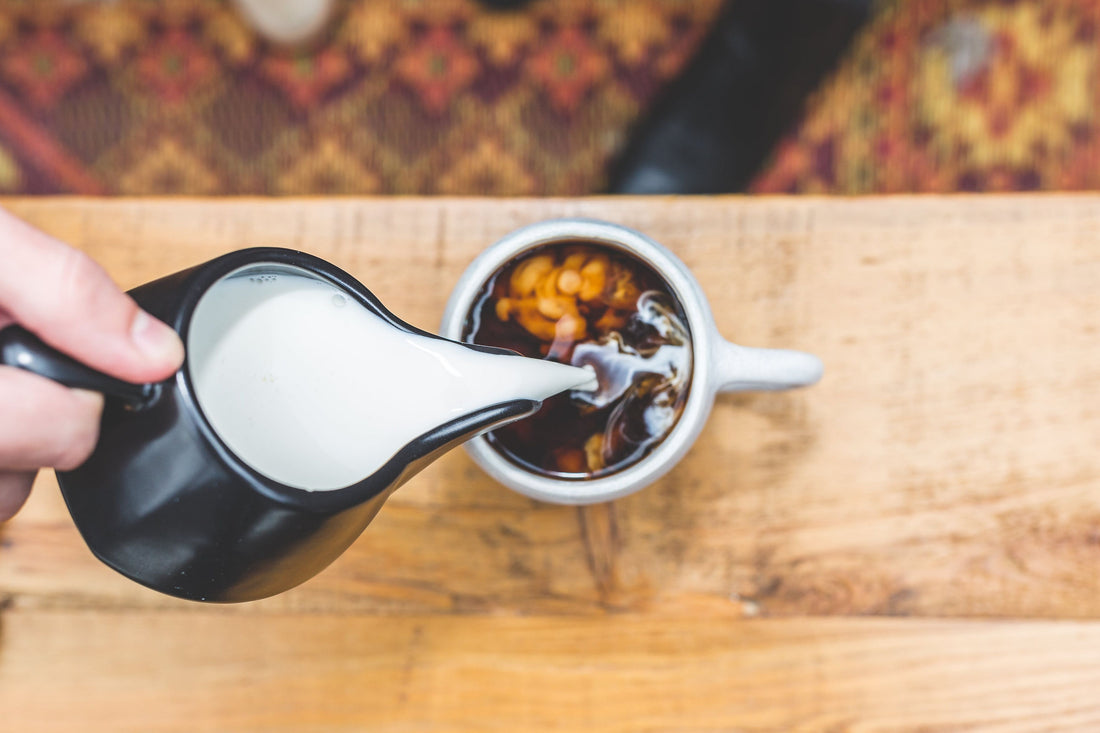
Additives to tea - milk, sugar and salt?
Michele LillieWould you like some milk or sugar with your tea? How about a pinch of salt? You may think that sounds crazy, but this recent suggestion by an American chemistry professor caused a bit of uproar and caught the attention of both the U.S. Embassy in London and the Cabinet Office of the UK.
Michelle Franci, an American chemistry professor recently penned a book on the chemistry of tea. In it, she suggested that adding a pinch of salt leads to a better cup of tea. According to the professor, the sodium ions in the salt block the bitter receptors in our mouth. Thus, our tea tastes less bitter.
As one can imagine, British tea drinkers were horrified by this suggestion, and it was just more reason to think Americans knew nothing about how to brew a good cup of tea.

The US Embassy in London decided to enter the fray by reassuring the British people that salt in your tea was not official US policy. In a somewhat tongue-in-cheek post on X, they said,
“Today’s media reports of an American Professor’s recipe for the “perfect” cup of tea has landed our special bond with the United Kingdom in hot water. Tea is the elixir of camaraderie, a sacred bond that unites our nations. We cannot stand idly by as such an outrageous proposal threatens the very foundation of our Special Relationship. Therefore, we want to ensure the good people of the UK that the unthinkable notion of adding salt to Britain’s national drink is not official United States policy. And never will be. Let us unite in our steeped solidarity and show the world that when it comes to tea, we stand as one. The U.S. Embassy will continue to make tea in the proper way – by microwaving it.”
The Cabinet Office of the UK responded similarly.
We appreciate our Special Relationship, however, we must disagree wholeheartedly... Tea can only be made using a kettle.
According to Wee Kek Koon, writing in the South China Morning Post, during the second century BC Chinese people brewed their tea “in a pot of water with ginger, scallions, jujubes, orange peel, mint leaves, and so on, to create a broth, and the ingredients eaten as one would a soup.” He continues, "Tea drinkers of the Tang period (618-907) added salt, something the Tibetans still do when making yak butter tea.”
This concept is not unheard of as some recommend the same for coffee and it is standard in Mongolian tea.
A well-respected food and beverage website – Serious Eats – tested this notion. They brewed cups of tea with and without salt. Their taste testers strongly preferred the cups of tea to which salt had been added. They did caution, though, that you need to only add a tiny pinch so as to counter the bitterness without tasting salty. One might ask what exact tea was used and how brewing was accomplished. Tea aficionados know that choosing the best quality tea and brewing it properly is the best way to prevent a bitter cup in the first place.
The same professor goes on to address other less controversial additives to tea. One such additive is milk. Professor Franci does not add milk for a practical reason – she has no place to store it in her office. She also states a much-argued theory that milk reduces the level of healthy antioxidants in tea. Without getting too much in the weeds, just know that there are multiple studies on both sides of this argument. In addition, even if milk does inhibit some of the antioxidant activity, it doesn’t cancel it out entirely.

An age-old debate is when to add milk to your tea if that is your preference. First, not all teas tolerate milk. Hearty, black teas may do well with milk, but green and white teas should not have milk added to them.
If you do add milk, there are two types of tea drinkers - MIF (Milk in First) and TIF (Tea in First). This is an important question in England with ardent supporters of both positions. It is such an important question that in 2003, The Royal Society of Chemistry (RSC) issued a press relief on this very subject.
Historically, the argument favoring MIF is that the milk prevented the hot tea from cracking delicate china. MIFs insist the tea tastes better if the milk is poured in first. They also argue that the hot tea warms up the milk, prevents staining of the cup and saves one from having to stir the tea as the pouring tea does the mixing.
TIFs main argument is that pouring in the milk after the tea is the only way to see how much milk one wants to put in the tea. According to Paul Burrell, former butler at Buckingham Palace, milk should always be added last.
So, what did the RSC conclude? MIF is the way to go. They say that the milk proteins suffer less denaturation if added before the hot tea.
The press release goes on to discuss how to brew the perfect cup of tea, adding the following.
“To gain optimum ambience for enjoyment of tea aim to achieve a seated drinking position in a favored home spot where quietness and calm will elevate the moment to a special dimension. For best results, carry a heavy bag of shopping – or walk the dog – in cold, driving rain for at least half an hour beforehand. This will make the tea taste out of this world.”
May we add that similar results can be had in a much warmer and drier environment by visiting English Tealeaves, where our staff will brew you an excellent pot of tea served just as you like it!
